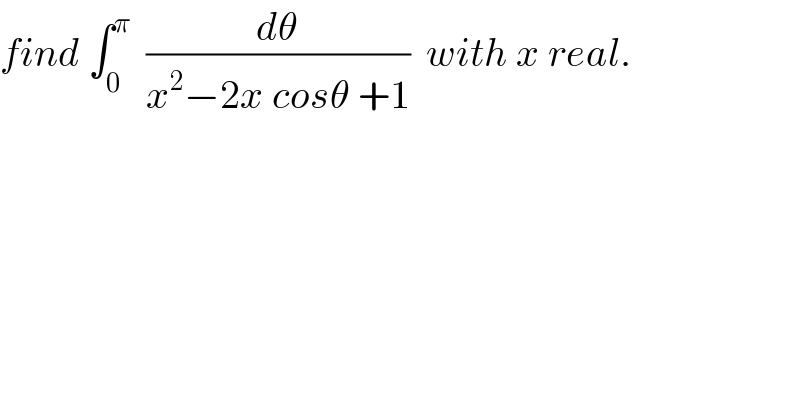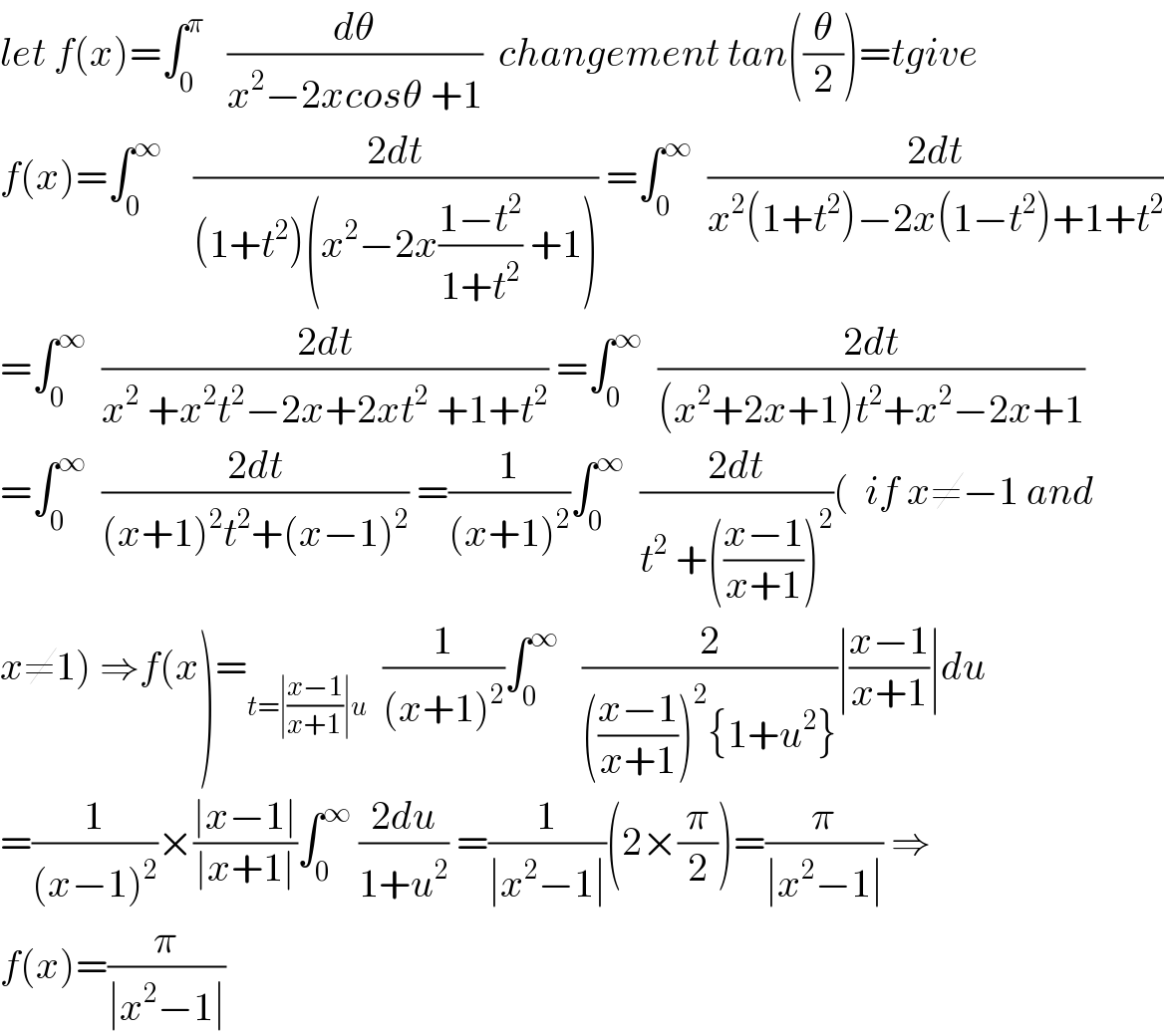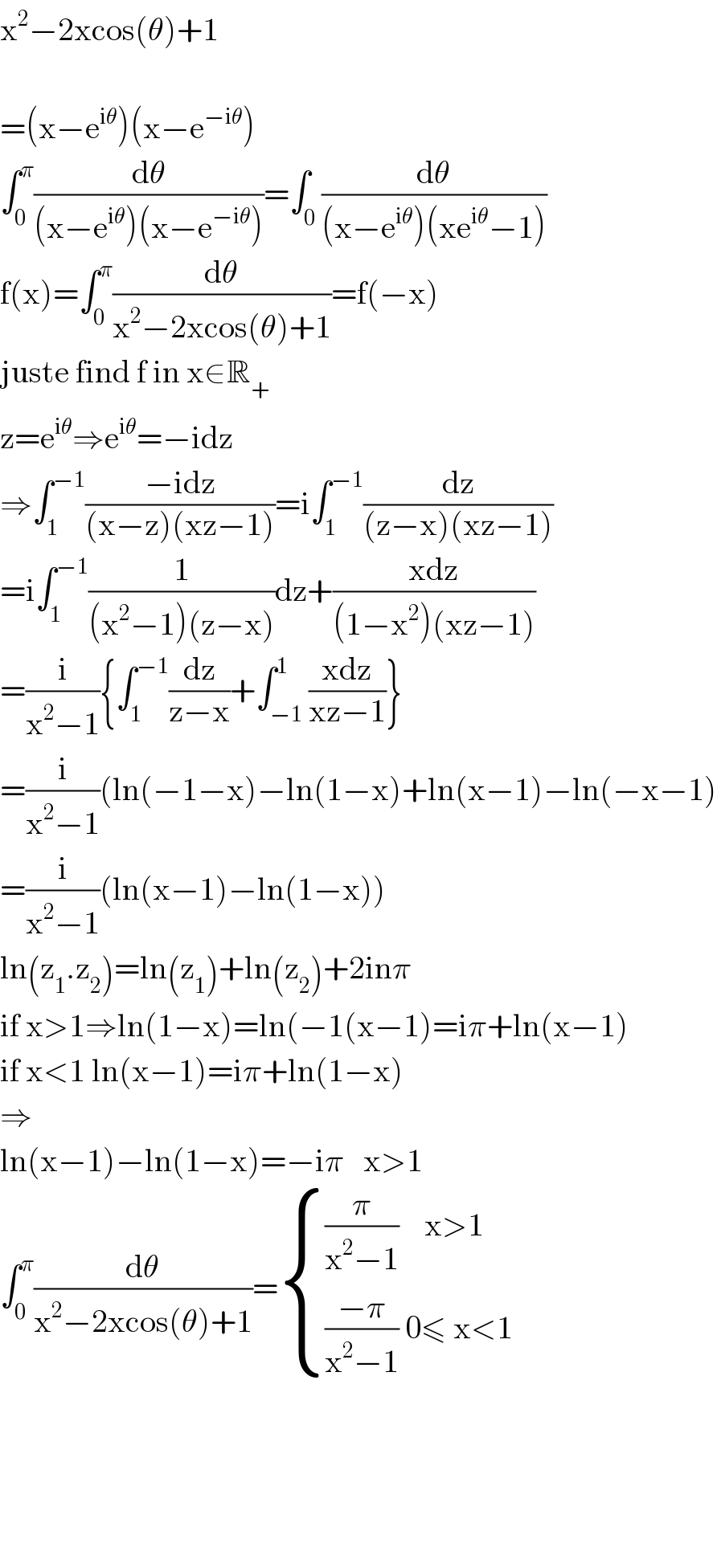
Question and Answers Forum
Question Number 72908 by mathmax by abdo last updated on 04/Nov/19

Commented by mind is power last updated on 05/Nov/19

Commented by Tanmay chaudhury last updated on 05/Nov/19

Commented by Tanmay chaudhury last updated on 05/Nov/19
![(1/(1−x^2 ))∫_0 ^π ((1−x^2 )/(x^2 −2xcosθ+1))dθ [when x<1 ] (1/(1−x^2 ))∫_0 ^π (1+2xcosθ+2x^2 cos2θ+2x^3 cos3θ+...)dθ (1/(1−x^2 ))[∣θ∣_0 ^π +others terms=0 =(π/(1−x^2 )) answer case−II when x>1 let k=(1/x) when x>1 so k<1 ∫_0 ^π (dθ/(x^2 −2xcosθ+1))dθ ∫_0 ^π (dθ/((1/k^2 )−(2/k)cosθ+1))dθ ∫_0 ^π ((k^2 dθ)/(1−2kcosθ+k^2 ))dθ [note k<1] k^2 ×(π/(1−k^2 )) =(π/((1/k^2 )−1))=so answer is =(π/(x^2 −1))](Q72910.png)
Commented by mathmax by abdo last updated on 05/Nov/19

Commented by Tanmay chaudhury last updated on 05/Nov/19

Commented by ajfour last updated on 05/Nov/19

Commented by Tanmay chaudhury last updated on 05/Nov/19

Commented by ajfour last updated on 05/Nov/19

Commented by Tanmay chaudhury last updated on 05/Nov/19

Commented by Tanmay chaudhury last updated on 05/Nov/19

Commented by Tanmay chaudhury last updated on 05/Nov/19

Commented by Tanmay chaudhury last updated on 05/Nov/19

Commented by Tanmay chaudhury last updated on 05/Nov/19

Commented by mind is power last updated on 05/Nov/19

Commented by mind is power last updated on 05/Nov/19

Answered by mind is power last updated on 05/Nov/19

Answered by ajfour last updated on 05/Nov/19
![I=∫_0 ^( π) (dθ/((x−1)^2 +4xsin^2 (θ/2))) dividing by cos^2 (θ/2) and let tan (θ/2)=t ⇒ (1/2)sec^2 (θ/2)dθ=dt ⇒ (sec^2 (θ/2))dθ=2dt I=∫^ ((2dt)/((x−1)^2 (1+t^2 )+4xt^2 )) =(1/((x+1)^2 ))∫((2dt)/(t^2 +(((x−1)/(x+1)))^2 ))=(2/(x^2 −1))tan^(−1) [((t(x+1))/(x−1))]+c =(2/(x^2 −1))((π/2)) = (π/(x^2 −1)) . I = (π/(x^2 −1)) ∙](Q72957.png)
Commented by mind is power last updated on 05/Nov/19

Commented by ajfour last updated on 05/Nov/19

